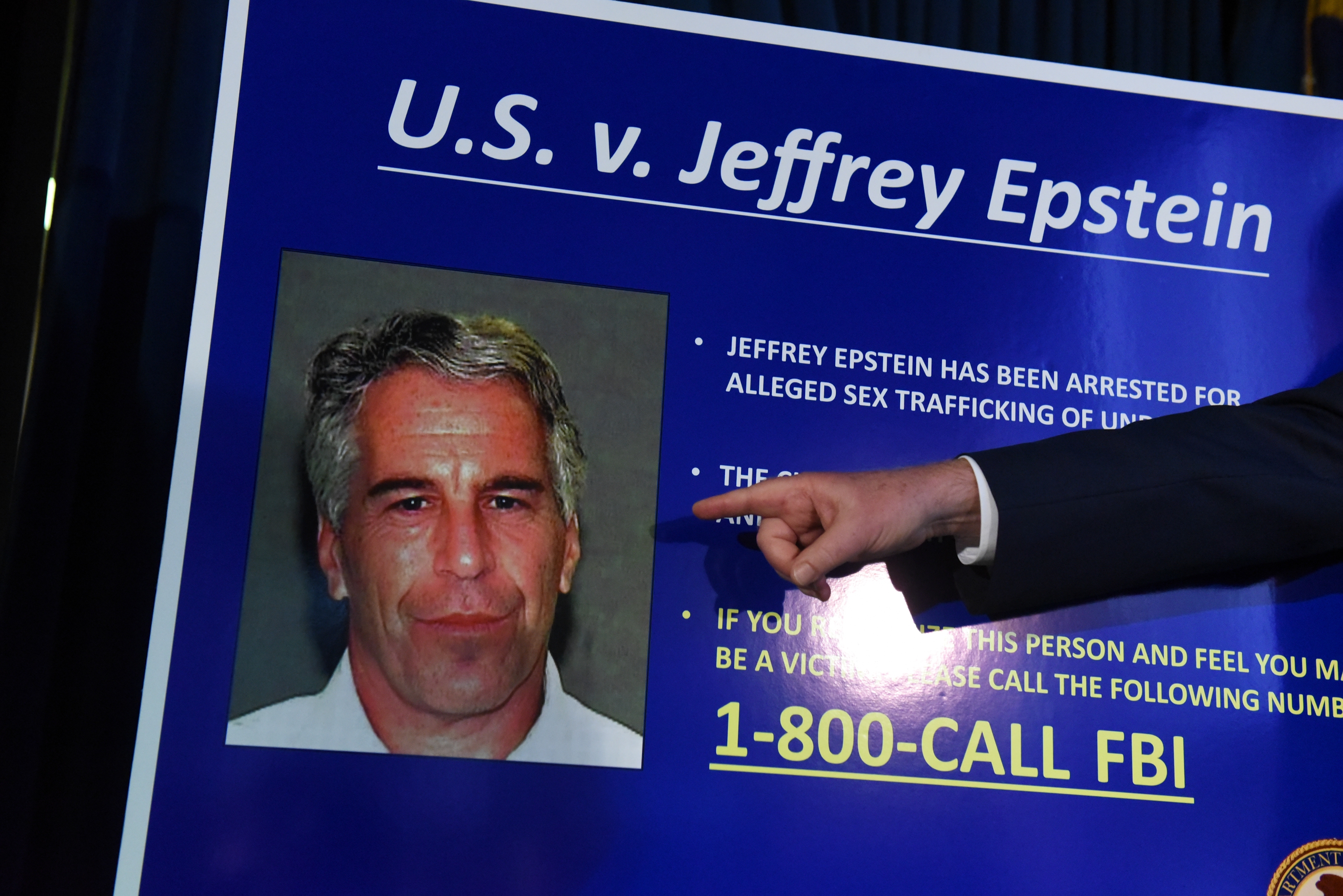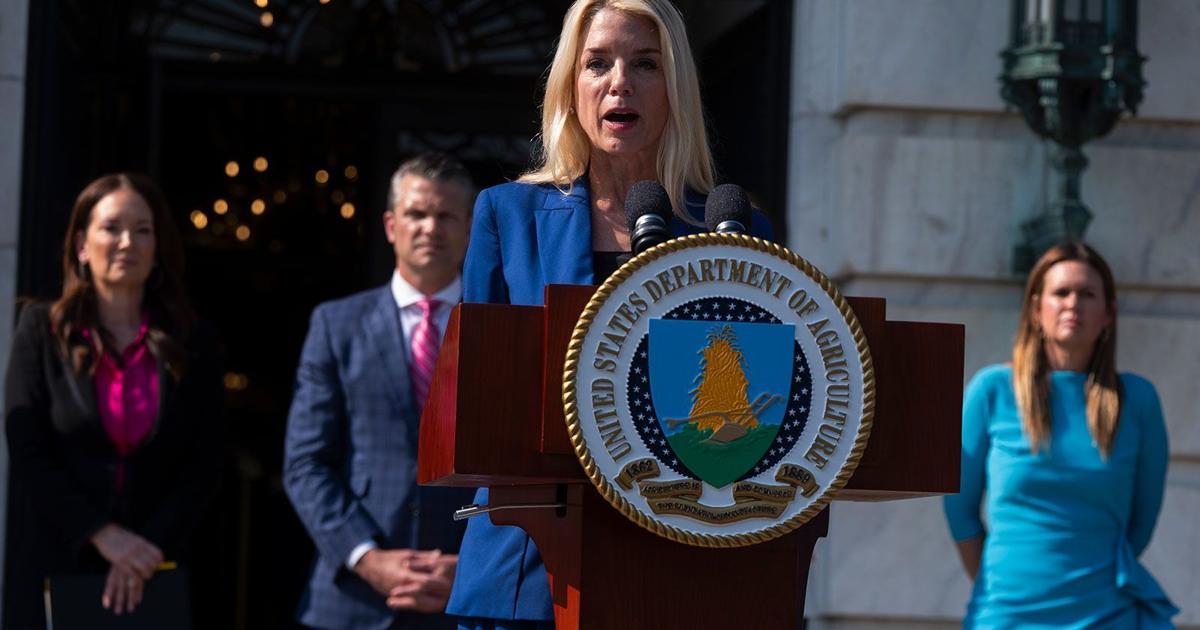Attorney General Pam Bondi woke up this week to find herself at the violent center of the very hurricane she had promised to calm because a terse eight-page memorandum from the Department of Justice, reported first by Axios, detonated on Washington like a depth charge and instantly shredded the narrative that her office had cultivated for months about a supposed trove of damning Jeffrey Epstein records waiting just beyond a locked door.
The document, signed by senior officials in the criminal division and blessed by the FBI, declared that investigators uncovered no incriminating client list, no credible blackmail scheme, no secret cache of videotapes implicating the rich and powerful, and no evidence to support the theory that Epstein was murdered inside the Metropolitan Correctional Center in August 2019.
Instead, it affirmed in dry bureaucratic prose that the notorious financier died by suicide and that any remaining sealed files are sealed only to shield victims from further trauma, not to conceal misdeeds of unnamed elites.
With that single stroke, months of Bondi’s televised hints, her solemn Fox News vow that a client list lay on her desk, her pledge in May that tens of thousands of abuse videos were under FBI review, and her repeated insinuations that earth-shattering revelations were imminent all crashed into a brick wall of official denial.
Conservatives who had taken her at her word erupted in fury across social media, accusing her of political theater and demanding explanations, while Bondi’s critics on the left portrayed the memo as proof that the attorney general had trafficked in conspiracy fodder to curry favor with a restless populist base hungry for proof of elite depravity.
The backlash was immediate and bipartisan. Robby Starbuck charged on X that Bondi must have been lying either then or now. Savanah Hernandez from Turning Point USA declared that Bondi should resign.
Even the influential anonymous account Catturd2 balked at the government’s claim, asking how Maxwell could be imprisoned for trafficking girls to nobody.
A chorus of distrust rang so loudly that White House press aides scrambled to distance the administration from Bondi’s earlier rhetoric, privately noting that the Justice Department memo had been prepared with the explicit goal of cooling feverish speculation that, in the words of the document, serves neither justice nor the welfare of the victims.

Bondi faces a dilemma of her own making. Since February she has threaded the needle between promising accountability and avoiding charges that she is politicizing the most shameful sex trafficking scandal in modern memory, but the strategy backfired once the Justice Department’s language landed with a clarity that left no room for spin.
The memo states flatly that further disclosure is neither appropriate nor warranted and that large tranches of sealed material are subject to court orders designed to protect minors.
That sentence alone undercuts months of Bondi’s insinuation that federal lawyers were foot-dragging. It also underscores the uncomfortable reality that the attorney general publicly contradicted her own department’s private assessments, a gap that critics call reckless.
Now, congressional Republicans sympathetic to Bondi are torn: some demand hearings to question the memo’s findings, while others quietly express frustration that the attorney general overpromised and underdelivered just as the party gears up for a critical election cycle in which trust in institutions is already scraping the floor.
Democrats, seizing the political opening, argue that Bondi’s rhetoric proves the right cannot govern responsibly, pointing to the memo’s line about child pornography to accuse the attorney general of dangling salacious fantasies that further traumatize survivors.
Yet the controversy refuses to conform neatly to partisan talking points because many of Bondi’s loudest detractors this week are the very influencers who once championed her crusade.
Inside the Department of Justice corridors, morale reportedly dipped as staffers fielded angry calls from lawmakers demanding to know why an attorney general had publicly claimed possession of records the department insists do not exist.
Senior officials privately grumble that Bondi’s public posture forced career prosecutors into the impossible task of chasing rumors, a drain on manpower that might have been spent pursuing active trafficking networks still preying on minors.

Meanwhile, Epstein’s victims watch from the sidelines with a mixture of exhaustion and resentment. For years they have begged authorities to focus on restitution and mental health support rather than sensational headlines, only to see another cycle of promises and disappointments.
One advocate, speaking anonymously to avoid harassment, said the victims feel like props in someone else’s political theater. The DOJ memo’s emphasis on combating child exploitation and preserving sealed court materials was, in part, drafted to reassure those survivors that their privacy remains paramount, yet the public discourse continues to revolve around what Bondi may or may not reveal rather than the lived pain of girls groomed and abused.
Bondi’s defenders argue that the memo itself acknowledges a fraction of previously public records might have surfaced at trial, suggesting there remains some material the public has not seen.
They insist the attorney general has been fighting institutional inertia to pry open files that entrenched bureaucrats prefer to keep buried. They point out that the memo relies heavily on reviewing existing investigations rather than initiating new ones, thus leaving open the possibility that earlier probes were incomplete.
But opponents counter that Bondi, armed with the full powers of federal law enforcement, could have filed motions to unseal if genuine wrongdoing lurked in sealed dockets.
Instead, they claim, she opted for cable-news suspense. The skeptical view gained traction when Axios noted that the binders Bondi touted as declassified largely rehashed documents available for years.
Each time the attorney general promised a forthcoming dump of names, expectations soared, only to crash when nothing materialized. The pattern, critics say, resembles political brinkmanship rather than a methodical legal campaign.
Behind closed doors at the Florida governor’s mansion, strategists weigh whether Bondi’s misstep could drag down the broader conservative message on law and order.

The Epstein scandal has long functioned as a bipartisan cudgel, wielded by right and left alike to accuse their opponents of complicity with global elites.
If Bondi’s credibility crumbles, Republicans risk losing a narrative weapon that galvanized a segment of the electorate disillusioned with Wall Street and Hollywood privilege.
Yet the blowback also exposes a deeper problem: populist voters distrust official pronouncements, so a DOJ memo dismissing the client-list theory may only inflame suspicion that evidence was buried.
In that sense Bondi’s initial claims, though now discredited by her own department, still serve a political function by reinforcing skepticism of federal power.
Some advisors quietly argue that Bondi should lean into that skepticism, portraying herself as a lone reformer stymied by the deep state, but resources for such a tactic are thin because the memo explicitly credits senior officials Bondi herself appointed, leaving little room to blame predecessors.
Moreover, FBI Director assignments under her tenure have repeatedly stated there is no video treasure trove, and whistleblowers have not stepped forward to contradict them. To claim a cover-up would require implicating her own chain of command.
Compounding the crisis is the timing. The attorney general was expected to headline fundraising dinners and speak on human trafficking awareness this summer, yet donors are now skittish and organizers whisper about cancelations.
Advocacy groups that once applauded her tough talk fear their campaigns will be tainted by association with what conservative columnist Byron York labeled the Bondi Backfire.

They worry that each conference panel on trafficking will devolve into a referendum on whether the attorney general exaggerated evidence. Already, progressive lawmakers have drafted letters seeking an inspector-general review of department communications to determine whether Bondi misused official resources for political gain.
Even some libertarian Republicans have signaled support for an inquiry, arguing that the public has a right to know why the head of the Justice Department claimed possession of documents her own investigators disavow.
In Tallahassee, Bondi has maintained a restrained public schedule since the memo’s release, issuing a two-sentence statement that she remains committed to full transparency and continues to push for every viable lead to be pursued.
The brevity of that message stunned reporters accustomed to Bondi’s flamboyant television style. Veteran legal analysts interpret it as a tactical retreat while her advisers draft a longer explanation.
Sources close to the attorney general say she will soon unveil a plan to audit all sealed Epstein docket entries in collaboration with a federal judge, hoping to demonstrate diligence and regain momentum.
But that gambit presents risks. If the audit produces nothing new, she stands to suffer a second humiliation. If it unveils sensitive victim details without implicating powerful names, she will face accusations of re-victimization. Either outcome could erode her political prospects.
Meanwhile, the families of well-known figures rumored to appear on a non-existent list express relief, yet some strategists warn that the memo will not stop internet sleuths from filling the vacuum with speculation.
Conspiracy theories thrive on ambiguity, and the absence of an official list only tempts armchair investigators to construct their own. Already, message boards claim Bondi’s promised documents were suppressed by shadowy interests, citing the very memo that denies their existence as evidence of a deeper plot. That ironclad logic loop ensures the scandal will remain alive long after official channels deem it closed.
The saga underscores the perilous interplay between justice, politics, and social media in the twenty-first century. Bondi’s predicament illustrates how a single televised tease can spiral into a relentless expectation cycle.
Once she declared a client list sat on her desk, she entered a trap of her own design. The public, bombarded with sensational allegations about Epstein’s network for years, craved closure.
Her promise conjured images of Hollywood moguls and royal heirs dragged into court. When the DOJ memo ripped that fantasy away, supporters felt betrayed, opponents felt vindicated, and moderates felt manipulated.
The attorney general now wrestles with a paradox: to restore trust she must provide evidence, yet the department says that evidence does not exist.
The simplest path—admitting overstatement—risks political suicide in a climate where humility is mistaken for weakness. Yet doubling down invites deeper scrutiny that could expose inconsistencies in internal communications.
The coming weeks will test Bondi’s resilience and the Justice Department’s capacity to hold its chief accountable without fracturing institutional unity. Senate Judiciary Committee members already hint at hearings, though timing remains uncertain.
Should Bondi testify, she will face questions about chain-of-custody protocols, briefing timelines, and the precise nature of those infamous binders. Democrats will interrogate whether she misled the public, Republicans will probe whether career officials withheld evidence, and both sides will jostle for viral sound bites.
Outside the Beltway, victims’ advocates will watch with weary eyes, hoping their trauma is not recast as partisan ammunition. Regardless of outcome, one truth stands clear: in the vacuum left by Epstein’s death, myth rushes to fill the void, and responsible leaders must choose between fueling the myths or confronting them with unvarnished facts, however mundane those facts may be.

Pam Bondi chose the path of tantalizing suggestion, and the whirlwind now engulfing her tenure is the inevitable consequence of promises that crash against the granite wall of documentary reality.


-1755598896-q80.webp)


